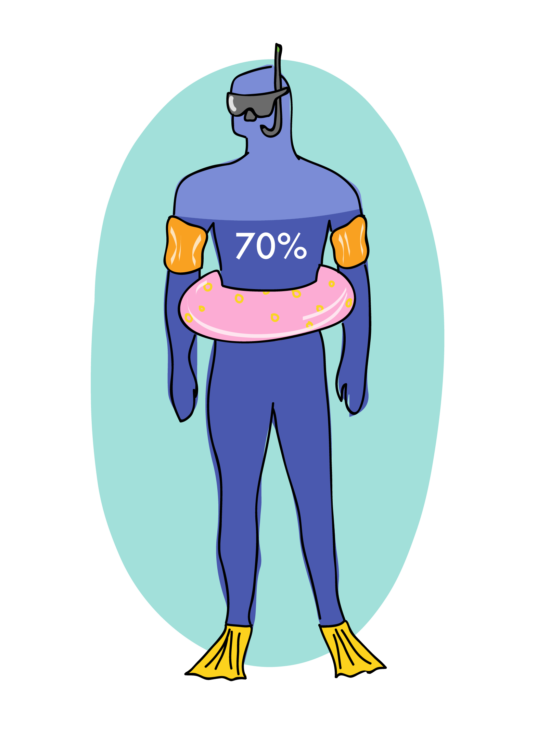Staying hydrated is an important aspect in the day-to-day life of any human being. Knowing how much water you need, along with the consequences of not getting enough, is important knowledge for leading a healthy lifestyle.
How much water your body needs to stay hydrated is dependent on a range of variables, including temperature, activity level, age and sex. Exercising heavily will increase the amount of water you will need to stay hydrated. Being out in hot or humid weather will do the same.
Dietitians of Canada recommends aiming for three litres, or 12 cups, of water for men 19 years or older and 2.2 litres, or nine cups, a day for women aged 19 years old or older. While it may seem straightforward to simply follow one’s thirst to decide how much water you need, thirst is actually a sign of mild dehydration, and it is healthier to drink water throughout the day to avoid getting  thirsty.
thirsty.
Other signs of mild dehydration may include things like dry lips and mouth, flushed skin, feeling tired, headache, dizziness, irritability and increased heart rate. Severe dehydration can cause symptoms such as blue lips, blotchy skin, confusion, cold hands and feet, rapid breathing, high fever and unconsciousness.
Keeping your body’s fluid intake in check provides a variety of benefits, as fluids help to control your body temperature, aid in digestion, carry nutrients to the different parts of your body, cushion your organs and joints, get rid of waste and keep your bowels regular — all of which are important to staying healthy.
Fluids are not restricted to water, however. Beverages such as milk, juice, coffee and tea all provide fluid to your body. While these do help keep you hydrated, water is generally your best choice to drink regularly throughout the day.
One way to measure your hydration is to take note of the colour of your urine. Dark urine similar to the colour of apple juice potentially indicates dehydration. Light, lemonade-coloured urine indicates a healthier level of hydration.
In order to make sure that you do not reach dehydration, it is helpful to carry a reusable water bottle throughout the day in order to maximize your access to drinking water. On campus, there are also water fountains you can use for a quick drink or to refill your water bottle.
Sweating heavily also causes your body to lose fluids, and replacing that lost fluid is important to your health and performance in sports. In sport and any physical activity, the importance of hydration increases, as you are actively losing fluids through perspiration. To counter this loss of fluid, water or a sports drink is recommended.
Sports drinks are useful for providing hydration, as well as energy through carbohydrates and electrolytes. Both energy and electrolytes are important to maintain when participating in intense exercise, exercise in hot or humid weather, or prolonged exercise.
There is, however, a line at which you pass being healthily hydrated and become overhydrated, which can be equally dangerous to being dehydrated. This is because drinking too much can cause low blood-sodium levels, which can in turn cause swelling of the hands and feet, vomiting, confusion, wheezing, and in some rare cases, has been known to lead to death.
Staying hydrated doesn’t need to be a challenge. By checking in with your body and making a conscious effort to drink more fluids, you’ll take to hydration like a duck to water.
—
Jack Thompson / Staff Writer
Graphic: Lesia Karalash / Graphics Editor
Leave a Reply